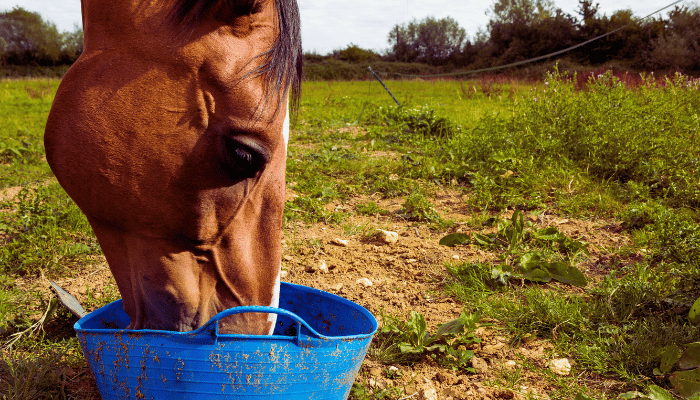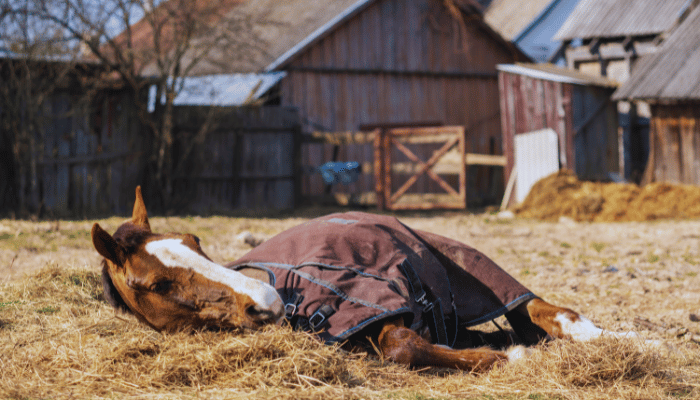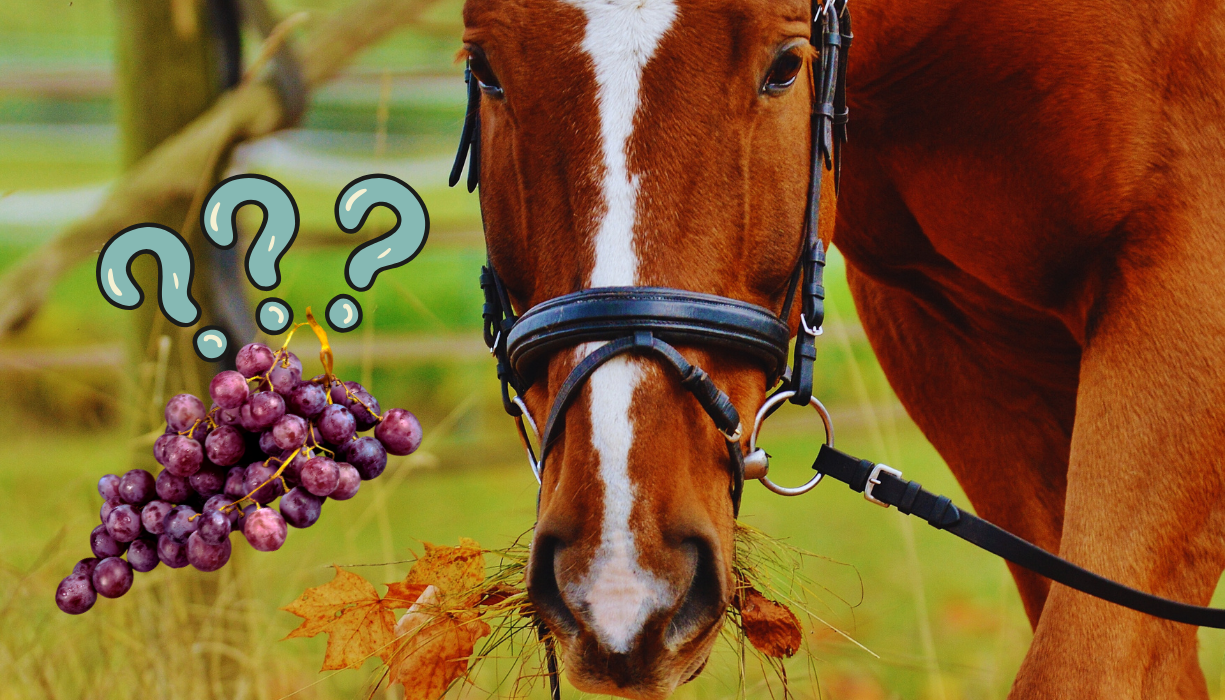Your horse’s diet is more than just a meal plan—it’s a lifeline. While fresh fruits may seem like a delightful treat, can horses eat grapes without harm? The problem lies in the blurred line between what’s safe and what’s a potential hazard.
You want to reward your equine companion with something sweet, but the wrong choice could lead to digestive distress or even toxicity. That’s enough to make any horse owner uneasy.
Here’s the solution: a clear, science-backed understanding of whether grapes are a healthy addition or a forbidden fruit for your horse. In this guide, we’ll unravel the truth, explore the benefits (if any), and share expert feeding tips to ensure your four-legged friend stays healthy and happy. If you’ve ever second-guessed that juicy bunch of grapes, this article is your ultimate answer. Stay tuned for the facts your horse deserves!
Understanding Horse Nutrition
Nutrition plays a crucial role in maintaining the overall health and well-being of horses. To make informed feeding decisions, it’s essential to understand the basics of equine digestion and the importance of a balanced diet.
Basics of Equine Digestive System
Horses are non-ruminant herbivores with a unique digestive system that is designed to process a high-fiber diet. Their digestive tract includes a small stomach and a large hindgut, which collectively work to effectively break down and absorb nutrients from fibrous plant material.
Key Characteristics
- Small Stomach Capacity: Horses have a small stomach that holds only 2-4 gallons, necessitating frequent small meals. They typically graze for about 16 hours a day.
- No Gall Bladder: Horses lack a gall bladder, which means they struggle to digest high-fat diets.
- Hindgut Fermentation: The caecum and colon house microbes essential for fermenting plant fibers, aiding in nutrient breakdown.
Importance of Balanced Diet
A balanced diet is pivotal for horses to maintain their health, energy levels, and performance. An imbalance can lead to digestive disturbances and other health issues.
Essential Nutrients
- Water: The most vital nutrient. Horses need ample water to facilitate all digestive processes, especially during periods of high temperature or strenuous activity.
- Carbohydrates: Primarily obtained from hay and grains, carbohydrates provide energy.
- Proteins: Essential for muscle development and repair. Sources include legumes and protein supplements.
- Vitamins and Minerals: Essential in small amounts. Macro-minerals like calcium and phosphorus are crucial for bone health (Rutgers Equine Science Center).
Sample Balanced Diet Breakdown
| Nutrient | Source | Importance |
|---|---|---|
| Water | Fresh water | Hydration, digestion |
| Carbohydrates | Hay, grains | Energy |
| Proteins | Legumes, supplements | Muscle repair |
| Vitamins & Minerals | Mineral blocks | Overall health |
By understanding these nutritional basics, horse owners can make informed decisions, such as whether feeding fruits like can horses eat grapes is appropriate. Ensuring a balanced diet will support the long-term health and vitality of their equine companions. For more information, you might also be interested in can horses eat bananas and other fruits to add variety to their diet.
Can Horses Eat Grapes?

Safety of Feeding Grapes
Yes, horses can eat grapes. Grapes are safe for equines and can provide a tasty and hydrating snack. Despite grapes being generally safe, it’s essential to ensure moderation in their consumption. Grapes can be an occasional treat, especially in hot weather, offering both hydration and a small nutrient boost.
The natural sugars in grapes provide a quick source of energy, which can be useful during or after strenuous activities. Grapes are packed with water, making them a juicy and refreshing snack, helping to keep your horse hydrated.
Moderation Guidelines
While grapes are safe for horses, they should be offered sparingly. It is recommended to feed horses a handful of grapes, approximately 8 to 10, to prevent potential issues like digestive upset. Introducing grapes gradually over 5-7 days also helps prevent any digestive distress such as diarrhea, colic, or laminitis (PetMD).
| Quantity | Purpose |
|---|---|
| 8-10 grapes | Safe serving size to prevent digestive upset |
For those interested in other safe fruits for horses, check our article on fruits like apples, celery, and bananas. Limiting sugary treats is crucial for maintaining a balanced diet and preventing health issues related to overconsumption of sugar.
Understanding these guidelines ensures that your horse enjoys the occasional grape treat without compromising their health. Always monitor their intake and adjust as necessary, considering their overall diet and health status. For more information on proper diet and care, explore further topics like do horses eat hay and other dietary considerations.
Benefits of Grapes for Horses
Grapes, though not a common treat, can offer several benefits to horses when given in moderation. Let’s explore the nutritional advantages and how they can promote hydration and provide an energy boost for your equine friend.
Nutritional Value of Grapes
Grapes are packed with essential nutrients that can benefit your horse’s overall health. They are a rich source of vitamins, including Vitamin C, which plays a crucial role in supporting the immune system. Horses, like humans, require a balanced intake of vitamins for optimal health. Grapes also contain potassium, an essential mineral for muscle function and overall cellular health.
| Nutrient | Amount per 100g |
|---|---|
| Calories | 69 kcal |
| Carbohydrates | 18.1g |
| Protein | 0.72g |
| Fat | 0.16g |
| Vitamin C | 10.8 mg |
| Potassium | 191 mg |
Hydration and Energy Boost
Grapes are composed primarily of water, making them an excellent option for keeping your horse hydrated. This is particularly beneficial on hot days or after a workout. A few grapes can be a refreshing way to supplement your horse’s water intake and ensure they remain well-hydrated.
In addition to hydration, grapes provide a quick source of natural sugars, offering an immediate energy boost. This can be particularly useful during or after intense exercise, giving your horse the extra energy needed to recover (Bay Area Equestrian Network).
Grapes also contain antioxidants, which play a role in combating oxidative stress and supporting overall health. These antioxidants can be beneficial, especially for horses undergoing rigorous training or those experiencing the effects of aging.
For more information on safe and beneficial treats for your horse, check out our sections on can horses eat bananas, can horses eat watermelon, and can horses eat celery.
By providing occasional grape treats in moderation, you can offer your horse a nutritious snack that supports their overall well-being while keeping them happy and hydrated.
Risks and Precautions

Toxicity of Grapes in Horses
While the nutritional value of grapes for humans is well-documented, for horses, the story is quite different. Grapes contain a toxic substance called resveratrol which can cause kidney failure in horses. Even small amounts of grape ingestion can have severe health effects. Therefore, it is highly recommended to avoid feeding grapes to horses to ensure their safety and well-being.
Symptoms and Preventive Measures
Grape poisoning can occur in horses even with small quantities of grapes or grape residue, potentially leading to severe and life-threatening conditions like organ failure if left untreated. To prevent this, it is crucial to keep grapes and any grape-containing products out of reach of horses.
Symptoms of Grape Poisoning in Horses:
- Gastrointestinal upset
- Nausea
- Vomiting
- Diarrhea
- Weakness
- Decreased urine output
- Colic
Should these symptoms appear, it is imperative to seek veterinary attention immediately to prevent fatal complications.
Preventive Measures:
- Always store grapes and other potentially toxic foods in secured locations.
- Educate all handlers and visitors about the risks of feeding grapes to horses.
- Regularly inspect the horse’s environment for discarded fruits.
For more information on equine health management and nutrition, check out our articles on can horses eat bananas and can horses eat watermelon.
By following these guidelines and being vigilant about what your horse consumes, you can help ensure their health and safety. For further insights and detailed guidance, refer to our articles on can horses eat apples and do horses eat hay.

